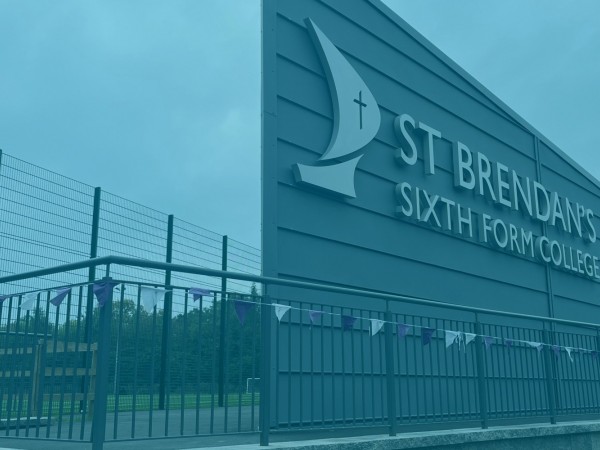Top tips for choosing your subjects
St Brendan’s offers a wide choice of different A-levels and BTECs which can be combined in any way to suit personal interests and career goals. With over 70 subjects to pick from, making 3 A-level choices can often be a daunting experience!
There are many things to consider when choosing your Level 3 subjects. Make sure you think about:
- What subjects do you enjoy at school?
- What subjects are you good at? Would you like to continue studying these?
- Do you have a career goal in mind? If so, do you know what A-levels (if any) you need to get you there?
- Do you want to study a particular course at university? If so, do you know what A-levels you need to get onto the course?
- How open do you want to keep your future study and career choices?
- What type of learning do you enjoy more? Exams or coursework, practical or theory?

Student enjoying Public Services
Enjoyment and success
It is really important that you select courses you will enjoy and flourish in. You will be studying these subjects for two years, so motivation and enjoyment is key! Now is the time you can finally have a say in what you learn – take advantage of that!
New subjects
Investigate subjects that may not currently be available to you at School. St Brendan’s offers subjects such as Public Services, Psychology and Sociology which the majority of schools don’t offer at GCSE level. Now is your chance to study something new! Make sure you attend Open Days and talk to the subject teachers to find out more about the course and ensure it is right for you before applying for it.
Subject combinations
Although St Brendan’s offers you the freedom of choice to pick any combination of subjects, it is important to consider which subjects work well together and suit you.
- Some students select subjects based purely on what they enjoy and these can be a mixture of academic, creative and vocational courses. This balance if often beneficial to students and ensures they have some variety in their timetable.
- Students with clear career goals in mind should investigate which courses work well together and which subjects they need to study to access their chosen career or university course. (E.g. Students wanting to become a Doctor should consider Biology, Chemistry and Maths).
- Ensure you select course combinations which are acceptable by universities. Some subjects such as Media Studies and Film Studies can be seen by some universities to work well together, however some universities may see them as being too similar and covering common ground.
Thinking ahead…
It can be very challenging to select your A-level subjects at this stage and University may seem like a lifetime away! However, it is important to be prepared and make sure you are on the right track towards your ideal university coures. Some degree courses specify the A-level subjects (and grades) that you need. There is more information on University courses and their entry requirements here: https://www.ucas.com/
and here:
https://www.informedchoices.ac.uk/

Chemistry student
Course content and assessments
Ask St Brendan’s teachers about the workload of subjects – find out more about the exam to coursework ratio. You will find it helpful to collect course leaflets during open days to discover more about the topics studied and what’s involved with the course. If you would like to receive particular course information, please email gw@stbrn.ac.uk and a course leaflet can be sent to you.
Be social!
Talk to current and past students who have studied or are studying A-levels you are interested in – Student Ambassadors are available during Open Events to share their experiences and offer advice. Talk to subject teachers about what’s involved and take opportunities to attend any performances, showcases or events being held by subjects to see the work you could be involved with! Do NOT select courses based on what your friends are doing – you will have plenty of time to see them outside of lessons and you’re sure to make lots of new friends during class too!
The world of work
If you are interested in a particular field of work, ensure you research the job before selecting our A-levels. You can look into different job roles here.
Helpful resources
- To generate career ideas: icould.com/buzz/
- To find information about different courses and careers: www.careerpilot.org.uk www.careersnearhere.com www.plotr.co.uk www.careersbox.co.uk

Student gets advice
Two Year Full Time Programmes
Level 3
These include A-levels and Level 3 BTECs. They all carry university entry points (UCAS points) - the difference is in the way that they are taught and assessed. Generally A-levels are academic subjects that rely on examinations and coursework, BTECs prepare you for work through practical assignments and coursework. Most students take a combination of 3 courses at level 3 which can include A-levels and BTECs.
One Year Full Time Programmes
Access to Level 3
Access to Level 3 is a one year programme and learners will study a bespoke timetable equivalent to 5 GCSEs. To access the programme, students need to have a minimum of 4 grade 3's at GCSE including a 3 in English Language and a 3 in Maths. Find out more about the Access to Level 3 programme here.

